SPCK Introductions (6 vols.)
Digital Logos Edition
Overview
Philosophy is too often considered abstract and out of reach for the average person. Worse yet, some believe it to be dangerous or a stumbling block to the Christian religion. But the development of human thought, particularly as it applies to understanding faith and making daily decisions, is important for every person to consider. In an intelligent but accessible way, this series aims to introduce thinkers who have made significant contributions to Christian thought. Some are notable in religious history, and others are best known for their critical perspectives. Rahner, Weil, Kierkegaard, Nietzsche, Bonhoeffer, and Barth: none delivers the same message, yet all are relevant.
The SPCK Introductions series offers the perfect starting point for new learners, and is a valuable Christian perspective for serious students of philosophy. Simone Weil asserted that, ultimately, the thing we seek in literature, philosophy, and theology is not what we may learn about the author, but what we may learn about truth. Use the critical thinking of these gifted men and women to inspect and strengthen your own faith and understanding of Christianity.
The Logos Bible Software edition makes these resources even more relevant to your study of philosophy. The collection links with the rest of your library, allowing for easy side-by-side comparison and cross-referencing. Perform comprehensive searches by topic to compare the perspectives of theologians, scholars, and other philosophical thinkers. Your preferred Scripture translation is displayed on mouseover, saving time and adding biblical depth to your study.

Key Features
- Introduces the lives and ideas of major philosophical thinkers
- Analyzes their thinking from a Christian perspective
- Discusses understanding and faith in daily life
Product Details
- Title: SPCK Introductions
- Publisher: SPCK
- Volumes: 6
- Pages: 768
Individual Titles
- The SPCK Introduction to Karl Rahner by Karen Kilby
- The SPCK Introduction to Simone Weil by Stephen Plant
- The SPCK Introduction to Kierkegaard by Peter Vardy
- The SPCK Introduction to Nietzsche by Lucy Huskinson
- The SPCK Introduction to Bonhoeffer by Keith Clements
- The SPCK Introduction to Karl Barth by D. Densil Morgan
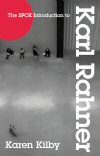
Karl Rahner, a German Jesuit, was a prominent and influential Catholic theologian of the twentieth century. In the 1950s he was on the margins, his orthodoxy questioned and his work censored. However, a decade later, he was a key theological adviser and shaping influence at the Second Vatican Council. Heavily influenced by Aquinas, his work sought to reconcile Christian faith with contemporary thought and the revelation of God in human experience. Here, Karen Kilby makes Rahner’s often dense and difficult thinking accessible to a wide audience. She sketches out a few of Rahner’s central themes, giving the reader a sense of the breadth of his work.
Lucid, perceptive, thickly textured, theologically rich, and refreshingly concise—Kilby’s presentation of Rahner’s theology is a must for students of Rahner, be they first year seminarians or senior theologians. I have taught her book for years and I still learn something new from it every time I return—it’s brilliant reading.
—Serene Jones, Yale Divinity School
This is an excellent book, very useful for students, and one of the clearest introductions to Rahner.
—John McDade, principal, Heythrop College
Karen Kilby’s book will be invaluable to teachers and students because of its lucid, learned, and penetrating understanding of one of the most important theologians of the twentieth century. It is the best single slim volume on Rahner that I know.
—Gavin D’Costa, professor of Catholic theology, University of Bristol
Karen Kilby is special lecturer in theology at the University of Nottingham. She has contributed articles on Rahner to The Blackwell Companion to Modern Theology, The Oxford Companion to Christian Thought, and The Modern Theologians.

Simone Weil was one of the most original philosophers and political thinkers of the twentieth century. During her life, her writings were almost unknown beyond a few close friends. Only after her death at age 34 did her work reach a wider audience, including Pope John XXIII, Pope Paul VI, Simone de Beauvoir, Leon Trotsky, and Iris Murdoch.
Weil was born in 1909 to nonpracticing Jewish parents and was an agnostic until her late twenties, when she became a Christian. She had a refreshing creativity and a rare ability to confront theological complacencies. She wrote about the nature of God, the nature of work, suffering, the importance of improving conditions for factory workers, and our duty to our community. She addressed key philosophical, theological, and ethical issues, many of which are as important today as they were in her own time. Here, Stephen Plant makes Weil’s often complex and challenging thought accessible to a wide audience. He outlines a few of the central themes of Weil’s thought and provides short extracts from her writings. This revised and expanded edition is an ideal introduction to Weil for both students and the general reader.
Stephen Plant . . . is to be warmly thanked and congratulated on producing such an attractive, clear, and well-ordered introduction to her life and thought. The book will be useful for general readers and students alike. His own writing is richly enhanced by many quotations from Weil’s output.
—Ministry Today
Stephen Plant is dean and director of studies in theology at Trinity Hall, Cambridge, and a lecturer at the University of Cambridge, Faculty of Divinity. He has worked in ministry in Hammersmith, as Europe Secretary of the Methodist Church, and as a lecturer in theology at the University of Durham. He is the editor of SPCK’s bimonthly journal, Theology, and has written or edited several books on Dietrich Bonhoeffer and Simone Weil.
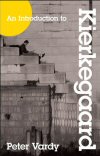
The writings of Søren Kierkegaard had little influence in his lifetime, yet today, he is internationally accepted as one of the world’s greatest philosophical thinkers. Widely considered the first existentialist philosopher, Kierkegaard focused on the personal choices of human reality. Here, Peter Vardy makes Kierkegaard’s often complex and difficult thinking accessible to a wide audience. He describes the theme and scope of Kierkegaard’s thought and gives the reader a feeling for the way he dissected problems, making this an ideal introduction to Kierkegaard.
Kierkegaard’s writings have fascinated and challenged many of the twentieth century’s greatest thinkers. In this most readable book, Peter Vardy skillfully unfolds why this is so . . . while at the same time relating Kierkegaard’s profound religious insights to many pressing issues with which people of the twenty-first century need to engage.
—Paul Rout, Yarra Theological Union, Australia
This is a refreshingly accessible summary of Kierkegaard’s work and his enduring importance and relevance today. Peter Vardy distills the essence of this complex, challenging man and stimulates a strong appetite for further study.
—James Kidner, director, Coexist Foundation
Peter Vardy is vice principal of Heythrop College at the University of London. He lectures internationally and is committed to providing a spiritual perspective in an increasingly secular and postmodern world. His best-selling books include The Puzzle of God, The Puzzle of Sex, The Puzzle of Ethics, and Being Human.
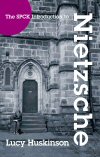
This is the first introductory book on Nietzsche to engage explicitly with his affirmative religious perspective and highlight what exactly Christians can learn from it. Friedrich Nietzsche, a key figure of modern and postmodern Western thought, is associated with many slogans and buzzwords—perhaps most famously, “God is dead.” This introduction rescues Nietzsche’s religious project from the murky misunderstandings that surround his confusing work. By engaging with his affirmative religious perspective and highlighting what exactly can be learned from it, this book makes his often complex and difficult thinking accessible to a wide audience.
Finally, an introduction to Nietzsche from a Christian perspective that presents the reader with a thoughtful, charitable, and reliable interpretation! While Huskinson rightly realizes that Nietzsche is a thinker who calls out to be read on one’s own and that all interpretations of his thought are partially reflections of the reader, her introduction is without doubt an excellent entrée to Nietzsche.
—Bruce Ellis Benson, professor, Wheaton College
To produce a brief introduction to Nietzsche’s thought, given its breadth, depth, and complexity, is an almost impossible task—especially when writing for a Christian audience. Lucy Huskinson has managed it intelligently and with tact, yet without weakening the force of Nietzsche’s trenchant criticisms.
—Graham Parkes, professor, University College Cork
For a philosopher who proclaimed He was dead, Nietzsche has much to say about God. This crisp and clear account is an ideal introduction for students and the general reader to this important—and controversial—figure.
—Paul Bishop, professor, University of Glasgow
Lucy Huskinson is lecturer in philosophy of religion at Bangor University. She is also a qualified psychodynamic counselor and a visiting fellow at the Center for Psychoanalytic Studies at the University of Essex. She is the author of Nietzsche and Jung: The Whole Self in the Union of Opposites and the editor of Dreaming the Myth Onwards: New Directions in Jungian Therapy and Thought.
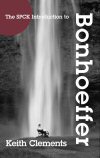
Dietrich Bonhoeffer’s insightful writings and staunch resistance to the Nazi party have ensured that he remains one of the twentieth century’s most influential theologians. This accessible and engaging introduction, written by an internationally acclaimed Bonhoeffer scholar, considers the role Bonhoeffer played in resisting the Nazis and explains his attitude toward the Holocaust.
A reliable and readable guide to Bonhoeffer’s legacy for a new generation of students and a much wider circle of readers.
—John W. de Gruchy, professor emeritus, University of Cape Town
Keith Clements studied at Cambridge and Oxford, and received his PhD from Bristol University. He was senior tutor at Bristol Baptist College and part-time lecturer at the University of Bristol from 1977 to 1990, secretary for international affairs in the Council of Churches for Britain and Ireland from 1990 to 1997, and general secretary of the Conference of European Churches from 1997 to 2005. He has written extensively on Christian life and thought, with a special interest in Dietrich Bonhoeffer. He is the author of Bonhoeffer and Britain and the editor of Dietrich Bonhoeffer Works Vol. 13: London 1933–35.
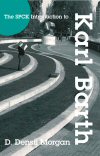
This introduction acts as an efficient entry point into the philosophy and writings of a great thinker. The fast-paced narrative describes Barth’s early life, his background, and the political context in which his thinking took shape. In a comprehensive but clear way, this volume provides the reader with an overview of this theologian’s crowning work, Church Dogmatics, and a true sense of the richness of Karl Barth’s thought.
D. Densil Morgan combines a historian’s eye for significant details with a pastor’s love of theological wisdom in this engaging introduction to Karl Barth. Laypersons, seminarians, and students of theology will find here a very faithful and readable portrayal of Barth’s towering theological vision, as well as the unique historical crises from which it arose.
—Thomas John Hastings, director of research, Center of Theological Inquiry, Princeton
This really is a readable, accessible introduction that takes account of some of the most recent Barth scholarship. It is highly recommended for those coming to Barth’s work for the first time.
—Oliver D. Crisp, professor of systematic theology, Fuller Theological Seminary
Of the many introductions to Barth, this ranks as one of the best. The clarity and ease of its exposition of Barth’s life and thought are exceptional, as is its alertness to the deep impulses of Barth’s theology. As the book guides readers through the great sweeps of Barth’s arguments, it conveys the excitement and provocation which his work generates. Novices and seasoned readers alike will gain a great deal from this generous and perceptive account.
—John Webster, professor, University of Aberdeen
D. Densil Morgan has held a personal chair at Bangor University since 2005 and is a member of the Center of Theological Inquiry based in Princeton, New Jersey. A church historian, he has an abiding interest in systematic theology, especially that of the nineteenth-century Reformed tradition and the contributions of Karl Barth. His most extensive work has been on religion and society in his native Wales, where he has published several volumes.